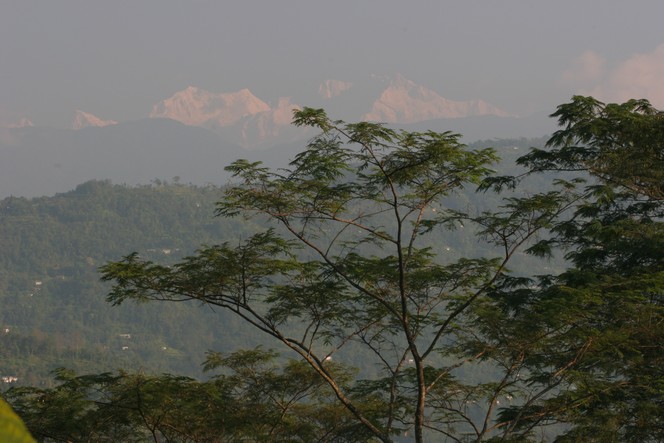A few days ago I bought a wonderful third flush Singbulli, and this morning I have just confirmed the purchase of a Rohini, also harvested in November. The first lot only weighs 70 kilos, the second lot just a little more, and they will arrive in France in December.
Those of you who love fine Indian teas must remember that Darjeelings produced in March, June and the autumn have very little in common. The reason is that this mountain you see here, Kanchenjunga (8,586 m), creates a great contrast with the weather conditions of the plains on the subcontinent. Darjeeling is one of the tea-producing regions with the most varied climate.
In warmer seasons, the southerly wind brings some of the stifling heat of the plains to these mountains. On the other hand, as winter approaches, the peaks make their presence felt, the sky becomes clear and the temperature drops. And the growth of the tea plants gets slower and slower, which is another reason for the variations in their flavours.





